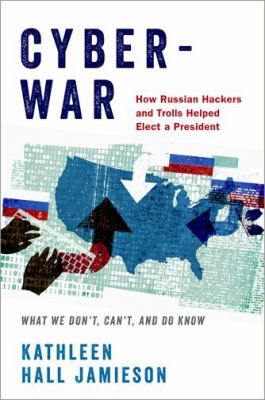
Book
|
Cyberwar : how Russian hackers and trolls helped elect a president : what we don't, can't, and do know
-- Cyber war
Copies
2 Total copies, 2 Copies are in,
0 Copies are out.
Title
Cyberwar : how Russian hackers and trolls helped elect a president : what we don't, can't, and do know -- Cyber war
Call No
JK526 2016
Authors
Subjects
Trump, Donald, 1946-
Presidents--United States--Election--2016.
Mass media--Political aspects--Russia (Federation)
Mass media--Political aspects--United States.
Diplomatic relations.
Mass media--Political aspects.
Presidents--Election.
United States--Foreign relations--Russia (Federation)
Russia (Federation)--Foreign relations--United States.
Russia (Federation)
United States.
Presidents--United States--Election--2016.
Mass media--Political aspects--Russia (Federation)
Mass media--Political aspects--United States.
Diplomatic relations.
Mass media--Political aspects.
Presidents--Election.
United States--Foreign relations--Russia (Federation)
Russia (Federation)--Foreign relations--United States.
Russia (Federation)
United States.
Language
English
Published
New York, NY : Oxford University Press, [2018]
Publication Desc
xiii, 314 pages : illustrations ;
ISBN
0190915811 (hardcover)
LCCN
2018028032
Dimensions
22 cm
MLA
APA
Chicago
0
/
0








